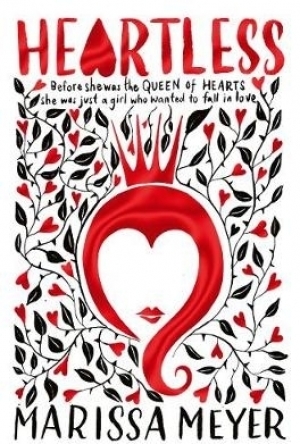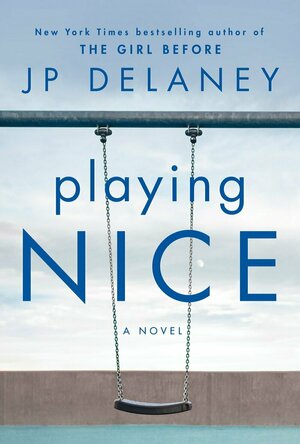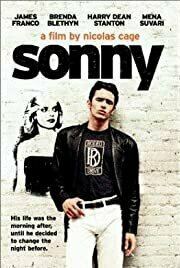Before she was the Queen of Hearts she was just a girl who wanted to fall in love. When Marissa Meyer finished writing The Lunar Chronicles, a series of books loosely based on fairytales, everyone wondered what she would do next. Continuing along the lines of using famous stories, Meyer has devoted an entire novel to Lewis Carroll’s Alice’s Adventures in Wonderland. With thousands of references to the original tale, and a couple of other works too, Heartless is perfect for fans of Carroll’s salient characters.
Unlike most retellings, Meyer has focused on events prior to Alice’s accidental discovery of Wonderland. The resulting novel is essentially a theory as to how the characters turned out the way they did in the original story published in 1865. Drawing attention to the predestined Queen of Hearts, a young woman named Catherine, readers discover a reason for her development into an infamous villain.
Lady Catherine Pinkerton is completely unlike the character she is fated to be. She is a kind, thoughtful girl whose greatest wish is to open her own bakery. Unfortunately, this dream is just that, a dream. With the asinine King of Hearts resolved to marry her, there is little Cath can do to avoid her royal future. At first it may appear odd that Cath is so against marrying the ruler of Hearts, but she soon makes it clear she would much rather marry for love. So, when the court joker, Jest – a similar character to the legendary Hatter – catches her eye, Catherine becomes determined to control her own future.
Heartless is a humourous, yet romantic, young adult novel, full of both well-known and new characters. Set in a world with morals similar to the Victorian era, it works extremely well as a prequel to Alice’s Adventures in Wonderland. Catherine is an admirable, feministic character who readers will struggle to believe will become such a notorious Queen. What could possibly happen to vastly alter her personality? Similarly, what is it that makes the Hatter go mad, and who is Jest? Being a character unique to this novel, there is a foreboding sense that this joker, and his poetry reciting raven – cue Edgar Allan Poe references – suffer a horrible demise.
Unlike Marissa Meyer’s previous books where the fairytales were not so obvious, the storyline in Heartless perfectly joins up with Lewis Carroll’s imagination. With references to mock turtles, the Jabberwock and other minor characters, there is so much to discover in Meyer’s interpretation of Wonderland – it even clears up a couple of scenarios from the original tale that may have bamboozled readers initially.
Admittedly, Heartless takes a little while to get going, but once it has, it is difficult to put down. Fans of Marissa Meyer may be disappointed that she did not stick to her futuristic storytelling, however all Alice enthusiasts will fall in love with this book – and probably with Jest as well. Overall, Heartless is a delightful book that reignites our inner childish imagination.
Before she was the Queen of Hearts she was just a girl who wanted to fall in love. </i>When Marissa Meyer finished writing <i>The Lunar Chronicles</i>, a series of books loosely based on fairytales, everyone wondered what she would do next. Continuing along the lines of using famous stories, Meyer has devoted an entire novel to Lewis Carroll’s <i>Alice’s Adventures in Wonderland</i>. With thousands of references to the original tale, and a couple of other works too, Heartless is perfect for fans of Carroll’s salient characters.
Unlike most retellings, Meyer has focused on events prior to Alice’s accidental discovery of Wonderland. The resulting novel is essentially a theory as to how the characters turned out the way they did in the original story published in 1865. Drawing attention to the predestined Queen of Hearts, a young woman named Catherine, readers discover a reason for her development into an infamous villain.
Lady Catherine Pinkerton is completely unlike the character she is fated to be. She is a kind, thoughtful girl whose greatest wish is to open her own bakery. Unfortunately, this dream is just that, a dream. With the asinine King of Hearts resolved to marry her, there is little Cath can do to avoid her royal future. At first it may appear odd that Cath is so against marrying the ruler of Hearts, but she soon makes it clear she would much rather marry for love. So, when the court joker, Jest – a similar character to the legendary Hatter – catches her eye, Catherine becomes determined to control her own future.
<i>Heartless</i> is a humorous, yet romantic, young adult novel, full of both well-known and new characters. Set in a world with morals similar to the Victorian era, it works extremely well as a prequel to <i>Alice’s Adventures in Wonderland</i>. Catherine is an admirable, feministic character who readers will struggle to believe will become such a notorious Queen. What could possibly happen to vastly alter her personality? Similarly, what is it that makes the Hatter go mad, and who is Jest? Being a character unique to this novel, there is a foreboding sense that this joker, and his poetry reciting raven – cue Edgar Allan Poe references – suffer a horrible demise.
Unlike Marissa Meyer’s previous books where the fairytales were not so obvious, the storyline in <i>Heartless</i> perfectly joins up with Lewis Carroll’s imagination. With references to mock turtles, the Jabberwock and other minor characters, there is so much to discover in Meyer’s interpretation of Wonderland – it even clears up a couple of scenarios from the original tale that may have bamboozled readers initially.
Admittedly, <i>Heartless</i> takes a little while to get going, but once it has, it is difficult to put down. Fans of Marissa Meyer may be disappointed that she did not stick to her futuristic storytelling, however all Alice enthusiasts will fall in love with this book – and probably with Jest as well. Overall, <i>Heartless</i> is a delightful book that reignites our inner childish imagination.
Kristy H (1252 KP) rated Playing Nice in Books
Sep 17, 2020
"'I'm sorry to have to tell you that Theo isn't your son. He's mine.'"
Delaney's latest is a fast and compulsive read. Told in alternating perspectives from Maddie and Pete, with some flashes to the past, the book is stressful and makes you think. What would I do in this situation? And what a terrible situation to be in. With both boys being two-years-old, they are already comfortable in their family lives. At first, each family is determined not to switch the children back. But it soon becomes clear that Theo is progressing better than David, who requires more specialized care. Is that what's affecting Miles out-sized affection for his newfound son? His constant, unannounced appearances on Pete and Maddie's doorstep? Meanwhile, Maddie feels wracked with guilt at leaving David behind. The emotions and decisions are clearly complicated.
I myself was fascinated that Delaney brought up a "baby switch" case in Charlottesville, VA at the hospital where I was born, though far earlier. If I had known about this case, I must have forgotten; I would have been in my mid-teens and probably not caring about such things at the time. Anyway, it was intriguing to hear a local reference, and it totally pushed me down the rabbit hole of researching that case (which is completely tragic).
It's hard to truly like any of these characters, even Maddie and Pete, who are initially sympathetic. Let's not even get started on Miles, who truly plays the villain well. But I appreciated that the characters and their feelings are complicated and well-portrayed here. While much of the story is character-driven, it's also a mystery, unraveling what happened when the boys were switched, and it's quite interesting.
The plot in this one moves quickly, escalating fast. I predicted the ending, but it didn't do much to diminish my enjoyment of the book. If you're looking for a different and fast-paced thriller, which also gets you thinking about emotional family dilemmas, definitely recommend. 3.5 stars.

A School in Arms: Uppingham and the Great War
Book
For many people, their only knowledge of Uppingham's involvement in the Great War is through Vera...
Islamic Macroeconomics: A Model for Efficient Government, Stability and Full Employment
Book
The economic model in many developed and developing countries is characterized by a 'Big Government'...
Making Design Theory
Book
Tendencies toward "academization" of traditionally practice-based fields have forced design to...
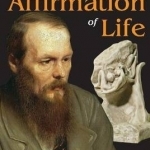
Dostoevsky and the Affirmation of Life
Book
Dostoevsky's philosophy of life is unfolded in this searching analysis of his five greatest works:...
Tommy Wiseau recommended Sonny (2002) in Movies (curated)
Long-Term Ecological Research: Changing the Nature of Scientists
Michael R. Willig and Lawrence R. Walker
Book
The Long-Term Ecological Research (LTER) Program is, in a sense, an experiment to transform the...
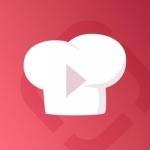
Runtasty - Healthy Recipes
Food & Drink
App Watch
Get 40+ free healthy recipes and kitchen hacks! Your complete healthy recipe book right in your...
